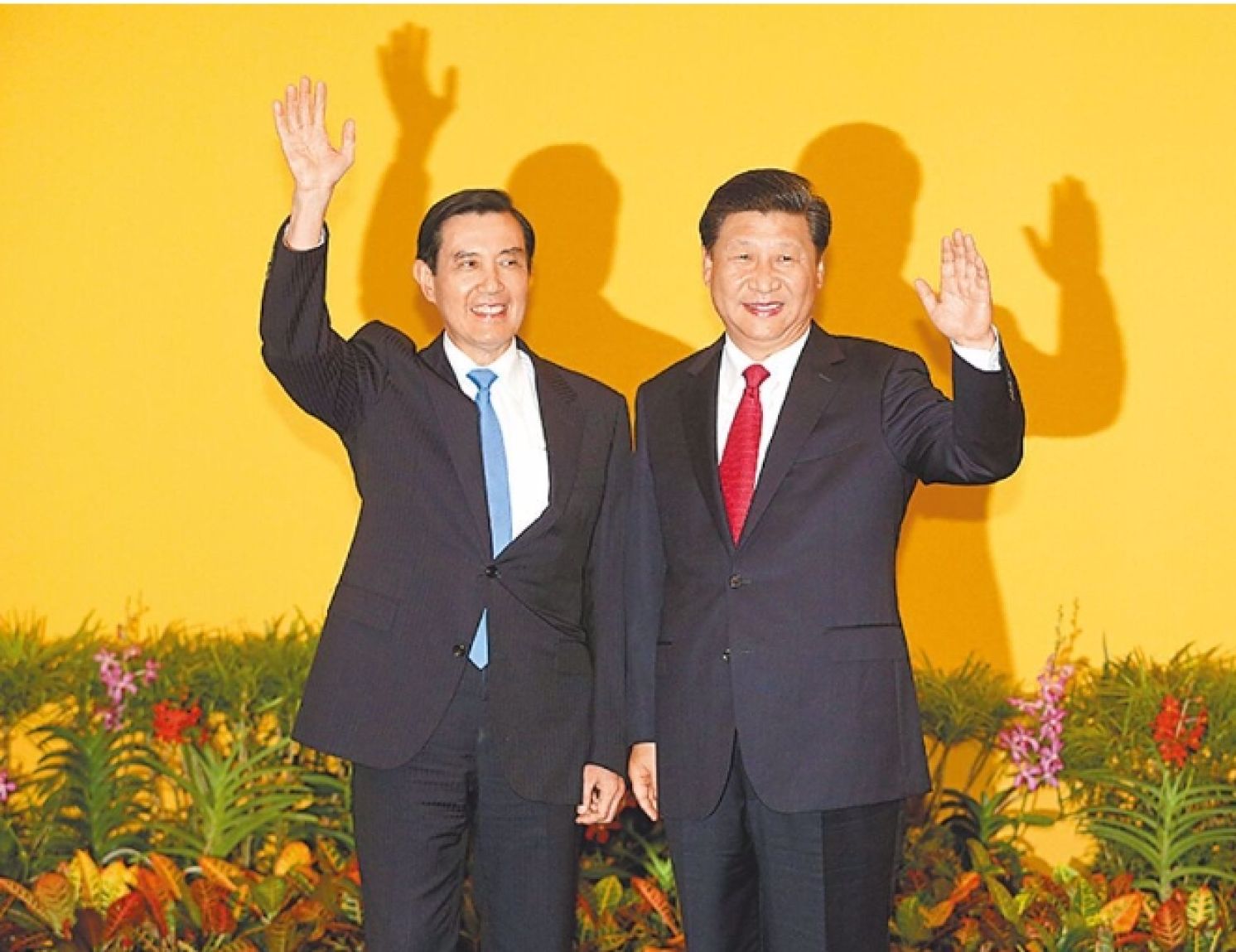
Former President Ma Expected to Meet Xi in Beijing
Comprehensive Report by Taiwan Weekly
Former President Ma Ying-jeou will visit China again on April 1, with his visit to Beijing sparking anticipation for a possible "Ma-Xi Meeting." Hsiao Hsu-tsen, executive director of the Ma Ying-jeou Foundation, noted the historical significance of the first meeting between leaders from both sides of the Taiwan Strait in Singapore on November 7, 2015, which ushered in a new phase in cross-strait relations, demonstrating mutual trust and the ability to engage in dialogue. Given the important history created nine years ago, they hope for a reunion with old friends.
On March 25, the Ma Ying-jeou Foundation announced that, at the invitation of mainland China, Ma will lead a group of young students on a visit to Guangdong, Shaanxi, and Beijing from April 1 to 11 to explore cultural and historical sites as well as enterprises.
Sources familiar with the matter indicated that each of the three locations on Ma's itinerary serves a distinct purpose: Guangdong honors revolutionary martyrs and the founders of the Republic of China; Xi'an's Qingming Festival Yellow Emperor's Memorial reflects Chinese cultural reverence for ancestors; and the highlight in Beijing is the anticipated "Ma-Xi meeting," rumored to take place on the 8th.
Since assuming the position of general-secretary of the Chinese Communist Party in November 2012, Xi Jinping has met with leaders of the Kuomintang (KMT) seven times in Beijing. Only two of these meetings did not include a KMT chairman or chairman emeritus; both instances involved former KMT Chairman Lien Chan. The most recent meeting took place on July 13, 2018, at the Great Hall of the People in Beijing, where Xi warmly referred to Lien Chan as an "old friend."
In 2015, during the "Ma-Xi meeting" in Singapore, Ma was president of the Republic of China. Although Ma currently holds no party or public office position, following the precedent set by Lien Chan, coupled with Xi's statement during the Singapore meeting that "there will be another meeting," it is anticipated that Ma's upcoming visit to Beijing will lead to a "Ma-Xi meeting." Xi is expected to meet Ma with high honors at the Great Hall of the People, acknowledging Ma's status as a "long-time friend," and given Ma's former role as president, the significance and representation are expected to surpass those of Lien Chan.
According to media reports, Ma's focus during his visit to China will be on "avoiding conflict and seeking reconciliation." He will express Taiwan's position under the R.O.C. Constitution and advocate for recognizing the cross-strait relationship of "mutual non-recognition of sovereignty and mutual non-denial of governing authority," particularly emphasizing the need to avoid "encroaching on each other's governing authority" in situations of mutual non-denial.
According to KMT officials, Ma's visit comes at a time of escalating cross-strait tensions. To address the current situation, Ma is expected to emphasize the principle of "mutual non-denial of governing authority" and focus on cross-strait peaceful development, the 1992 Consensus, opposition to Taiwan independence, and youth exchanges.
However, KMT officials expressed concern that the Democratic Progressive Party's (DPP) pro-independence stance of mutual non-subordination and "one country on each side" would overturn the tacit agreement between the two sides. Without the understanding of "mutual non-recognition of sovereignty and mutual non-denial of governing authority," incidents like the boat collision in the Jinmen-Matsu area could encroach on Taiwan's governing authority without recourse.
According to KMT officials, Ma's second visit and the "Ma-Xi meeting" are expected to have minimal impact on the DPP administration, with the primary focus being on the United States. It is the United States that can constrain the DPP administration. Before the end-of-year elections, the administration of President Joe Biden in the United States does not want any conflict in the Taiwan Strait. In the period before the elections, the Taiwan Strait will be a focus of joint concern and control between the United States and China. The key to controlling the Taiwan Strait lies in the United States. This constitutes the broader "U.S.-China dynamic" that is beyond the unilateral influence or decision-making of the DPP authorities.
According to insiders, whether the DPP genuinely does not know or is pretending not to know, the potential second "Ma-Xi meeting" will not put pressure on the DPP administration. It depends on how Ma performs; if he follows the script and criticizes, the DPP administration will not change its policy of leaning toward the United States and distancing itself from China. Furthermore, the DPP administration is unlikely to accept the "Ma-Xi meeting" as a framework for the incoming administration of President-elect William Lai after the May 20 presidential inauguration.
Premier Chen Chien-jen has already fired the first shot by urging Ma to assert "Taiwan is a sovereign independent country" in front of Xi. In response, Hsiao stated that the official country name is the Republic of China, and Chen and DPP legislators saying "Taiwan is an independent country" is unequivocally pro-Taiwan independence speech, violating the R.O.C. Constitution. He questioned whether Chen and DPP legislators were aware of what they were saying.
Hsiao emphasized that Ma would not convey the DPP's pro-Taiwan independence stance. The biggest crisis facing Taiwan now is that the DPP does not abide by the R.O.C. Constitution. While they claim to maintain the status quo publicly, they are secretly promoting Taiwan independence and are reluctant to openly amend the Constitution. Until this issue is resolved, Taiwan will continue to be in turmoil.